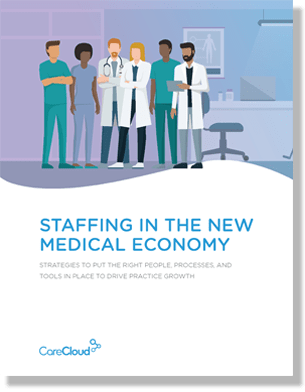Recently, the American Board of Medical Specialties (ABMS) chose to formally recognize clinical informatics as a certified subspecialty.
Many are wondering if the inception of this subspecialty will create new opportunities for physicians. Should docs start immersing themselves in health IT education now? What benefits would that reap?
The first clinical informatics board exams won’t be administered until late 2012, at the earliest, so physicians have some time to think their options over. But since healthcare technology is an important, ever-changing aspect of the medical landscape, the certification opportunity is a prospect that’s worth considering.
What is It?
The American Medical Informatics Association (AMIA) defines clinical informatics as “the application of informatics and information technology to deliver healthcare services.
Broadly, the field refers to IT use by all clinicians, but the subspecialty sanctioned by ABMS applies exclusively to licensed physicians. Only a doctor who is board certified in one of the 24 major medical specialties is eligible to work toward the secondary subspecialty in clinical informatics.
The approval of the certification was welcome news to the many physicians who have been working in healthcare technology over the past several years through academic research, product development, or technology consulting roles.
“This new decision by the ABMS basically validates what they’ve been doing and what people like them will want to do in the future,” says Edward Shortliffe, president and CEO of the American Medical Informatics Association. “It says ‘this is an important part of the future of medicine and it’s a logical thing for some physicians to choose to specialize in this area.’”
How Do You Get It?
The physicians who have already contributed to the field of clinical informatics will be rewarded for their work. For the first five years that the subspecialty is in existence (beginning 2013), board eligibility will be judged on the merit of previous or current work and experience in the field.
After five years, all physicians formally seeking the certification will be required to complete a fellowship in clinical informatics.
Between now and 2018, the Accreditation Council on Graduate Medical Education (ACGME) will create new clinical informatics fellowship programs and assess the current landscape of clinical informatics education. Only accredited programs will graduate board-eligible physician candidates.
A number of questions are lingering over the certification requirements. Will this overlap with Masters or PhD programs? How many course credits will it take to complete? Will physicians be able to take online classes to qualify?
Until the specifics of the fellowship programs become official, no one will know for sure.
What’s the Payoff?
Though uncertainties remain, it does seem that the ABMS’ decision will facilitate the emergence of a lucrative continued education path for physician careers.
A need for technologically knowledgeable clinicians in hospitals and medical practices already exists and is only going to grow. Technology’s involvement in the delivery of patient care has grown exponentially greater over the past decade and is expanding today.
EHR adoption continues to grow, health information exchange programs are proliferating across the country, and developments in robotics and telemedicine are changing the way medical care is delivered worldwide. As these innovations mature and other technologies are created, new opportunities for physician informaticians will undoubtedly emerge.
There’s already a framework for the value of informatics knowledge in health care; board certification for nursing informatics has been around for over 15 years. Nurses with informatics certification make around $15,000 more per year than those without it.
In fact, as technology becomes more ingrained in health care operations, clinical informatics certification may evolve into more than just an extra “leg up” on the competition – it could someday be a necessity.
“Will hospitals decide that they’re only going to hire board certified clinical informaticians?” wonders William Hersh, chair of the Department of Medical Informatics and Clinical Epidemiology at Oregon Health & Science University’s School of Medicine.
“I don’t think that opportunities are going to dry up right away, but in the long run, this will be a form of professional recognition.”
What are your thoughts on clinical informatics becoming a certified subspecialty?
Madelyn Young is a Content Writer for CareCloud and an expert on practice management, medical billing, HIPAA 5010, ICD-10 and revenue cycle management. You can read her work on Power Your Practice and the CareCloud Blog. Contact Madelyn with story suggestions, contributor articles, or any other feedback at madelyn@poweryourpractice.com or follow her on Twitter @madelyn_young.




